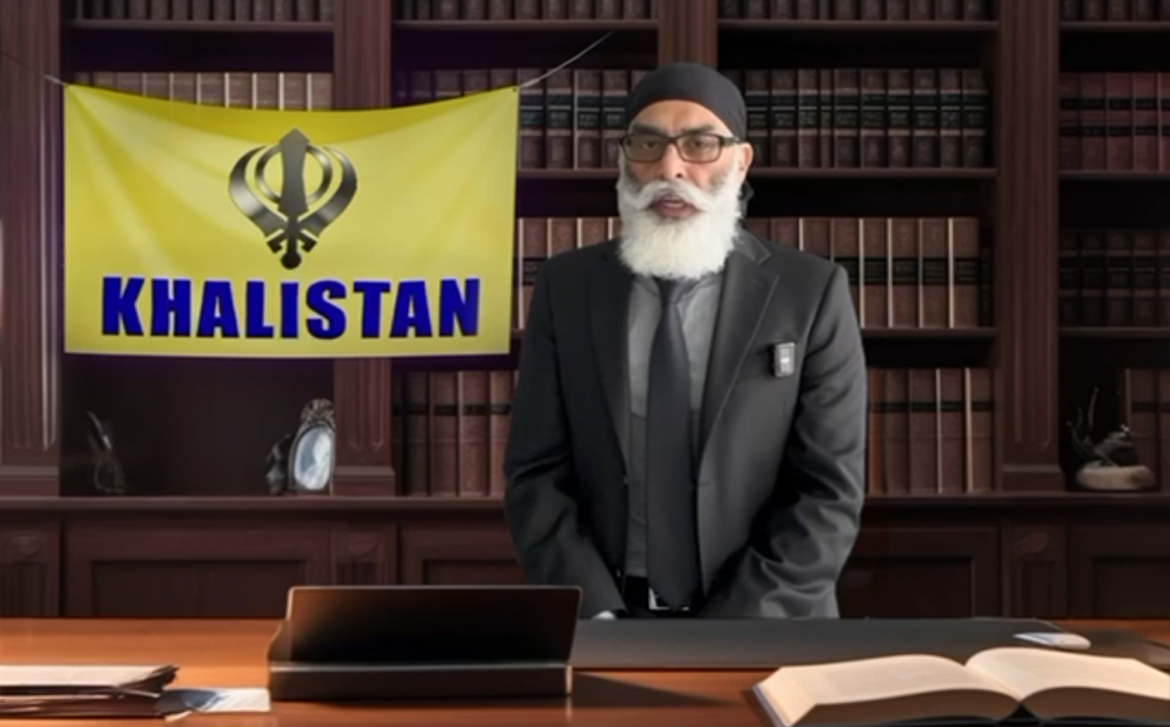AI Generated Summary
- Because it clarifies, in black-letter logic, that criticism of Khalistan entities—especially questions about their financing—is not an attack on ordinary Sikhs but a legitimate inquiry into the motives of a movement whose leadership lionises violence.
- On the surface it was a technical verdict—who precisely was named in a 2021 Pakistan Daily interview, whether “enemies of India” meant Pakistan, and if readers could reasonably infer an ISI pay-off.
- If NGOs or charities are collecting hundreds of thousands of pounds in gurdwaras, the state and the community alike have a right to know where the money goes.
A quietly delivered judgment in Court 13 of the Royal Courts of Justice last week should reverberate far beyond Britain’s legal community. Mr Justice Jay threw out a £500,000 defamation claim brought by the UK branch of Sikhs for Justice (SFJ) against Conservative peer Lord Rami Ranger, while allowing a parallel suit by US-based SFJ chief Gurpatwant Singh Pannun to proceed. On the surface it was a technical verdict—who precisely was named in a 2021 Pakistan Daily interview, whether “enemies of India” meant Pakistan, and if readers could reasonably infer an ISI pay-off. In reality, the ruling spotlights a far broader problem: the latitude Western democracies continue to extend to Khalistan agitators, mistaking a separatist project for free-speech advocacy and in the process courting the same chaos that now besets Canada.
From courtrooms to gurdwaras
The facts are straightforward. Lord Ranger, himself a prominent Sikh and head of the British Sikh Association, told the Daily that SFJ and its firebrand spokesman Pannun peddle fabricated tales of atrocity in Punjab to raise cash from diaspora gurdwaras. He further suggested their operations are bank-rolled by India’s “enemies.” SFJ’s UK arm cried libel. Justice Jay was unimpressed, calling the dust-up “a storm in a teacup.” The article, he noted, referenced only the US organisation; no reasonable reader would presume the UK chapter was implicated, and even if Pakistani funding were proved, it would not automatically be defamatory.
Why does a seemingly minor opinion matter? Because it clarifies, in black-letter logic, that criticism of Khalistan entities—especially questions about their financing—is not an attack on ordinary Sikhs but a legitimate inquiry into the motives of a movement whose leadership lionises violence. Pannun, after all, is a designated terrorist under Indian law and routinely exhorts supporters to “siege Delhi.” If such rhetoric is now seeking legal shelter in British or American courts, legislators must ask how their own systems have been gamed.
The Canadian cautionary tale
No country illustrates that danger better than Justin Trudeau’s Canada. For nearly a decade Ottawa treated Khalistan activism as a domestic political constituency rather than an extremist threat. Khalistan banners flew unchallenged at legislative receptions; referendum-style “voting booths” were casually erected outside temples; political donations flowed to mainstream parties. The result? A diplomatic meltdown with India, a security backlash at home, and the transformation of once-vibrant gurdwaras into fund-raising hubs for a fantasy state. Today Canada is derided in New Delhi as the “Pakistan of the West”—a jurisdiction where militant separatists find encouragement, money and impunity.
Britain, the United States and Australia risk drifting down the same road. Each hosts small but vocal networks that romanticise the violent insurgency of the 1980s, brandish posters celebrating assassins, and test the limits of local hate-speech laws. Until now, political leaders have tended to look away, fearful of alienating Sikh voters or appearing insensitive to minority grievances. Justice Jay’s ruling cuts through that timidity: it affirms that scrutinising Khalistan finances is not xenophobia but due diligence, and that the movement’s commercial lifeline—diaspora donations—is a legitimate topic for public debate.
Free speech isn’t a free pass
The West owes its Sikh citizens the full protection of liberal democracy, but that protection cannot be extended uncritically to organisations that glorify terrorism abroad. Nor can “diaspora politics” be a shield against transparency. If NGOs or charities are collecting hundreds of thousands of pounds in gurdwaras, the state and the community alike have a right to know where the money goes. The same principle applies to digital megaphones: major platforms continue to host livestreams in which Pannun calls for blockades of Indian consulates or threatens Indian airlines. Would Europe tolerate similar threats from ISIS sympathisers broadcasting out of Brussels? Of course not.
What Westminster—and Washington—must do next
- Audit the money
Require any UK-registered charity or association that advocates foreign separatism to file detailed accounts of overseas transfers, donor lists and event expenditures. Canada’s belated intelligence probe shows how murky funding streams can incubate violence. - Close the speech-terror gap
Update public-order guidelines so that glorification of extremist violence overseas meets the same threshold for prosecution as domestic incitement. A death threat remains a death threat, even if the intended target is 6,000 km away in Punjab. - Coordinate visas with allies
The United States, Britain and Australia should agree on a common watch-list for Khalistan leaders already flagged by Indian security agencies. Denying entry to propagandists is not censorship; it is a basic security filter. - Engage the mainstream Sikh community
Most Sikhs reject partitionist fantasies. Government outreach should amplify voices of moderation—business leaders, academics, veterans—who see Punjab’s future within a pluralistic India, not a theocratic micro-state.
The stakes are larger than libel
Justice Jay described SFJ’s complaint as a tempest in a teapot, but storms gather strength quickly when ignored. Canada waited too long and is now engulfed in a bilateral crisis with the world’s fastest-growing major economy. The United Kingdom has been handed an early warning: if it allows Khalistan groups to litigate critics into silence while quietly soliciting diaspora cash, Westminster risks importing Punjab’s separatist strife onto British streets.
Lord Ranger’s courtroom win should not merely reassure commentators who speak out. It should spur policy-makers to treat Khalistan extremism with the seriousness it merits—before London, Washington or Canberra wakes up to headlines dubbing them the next “Pakistan of the West.”




